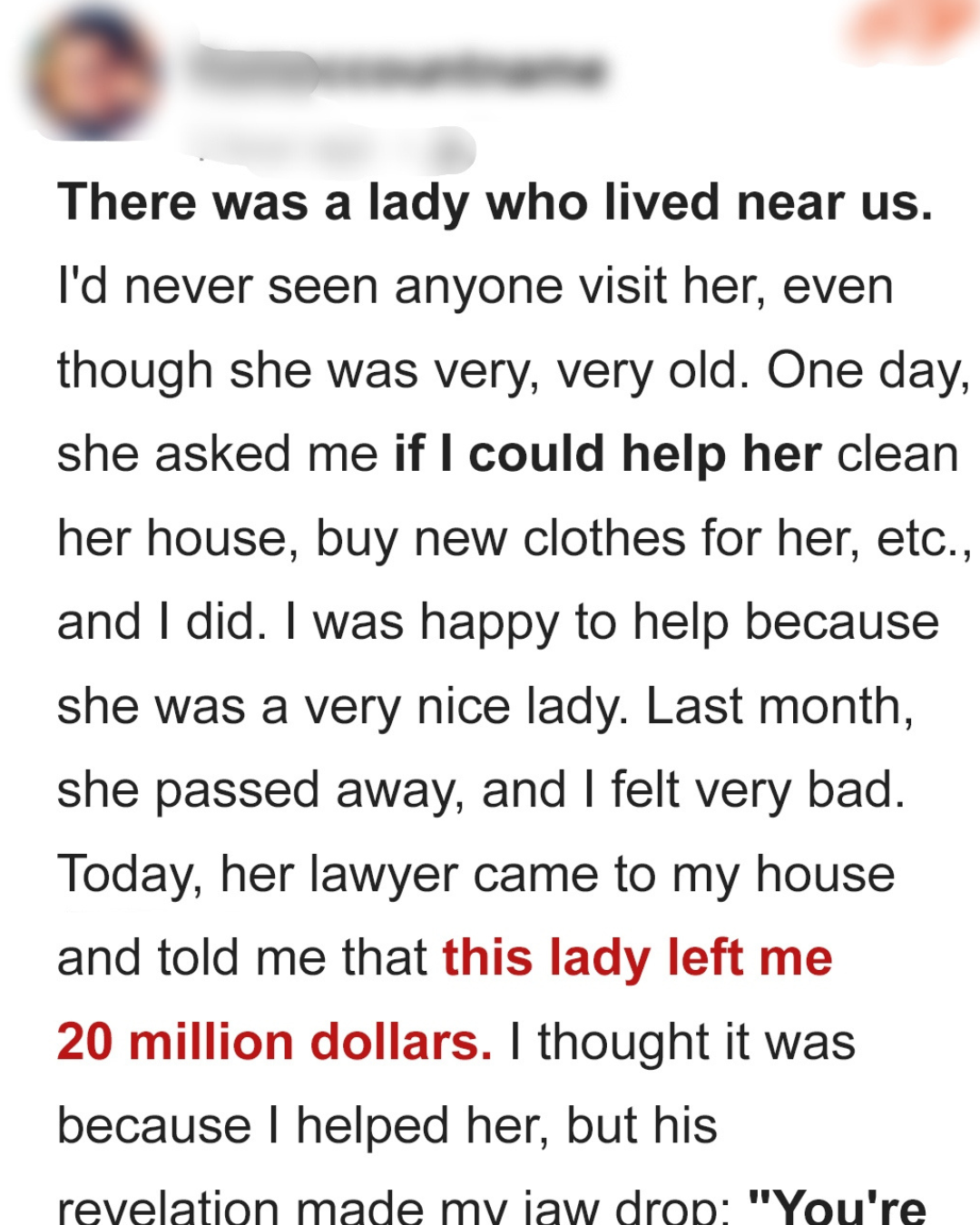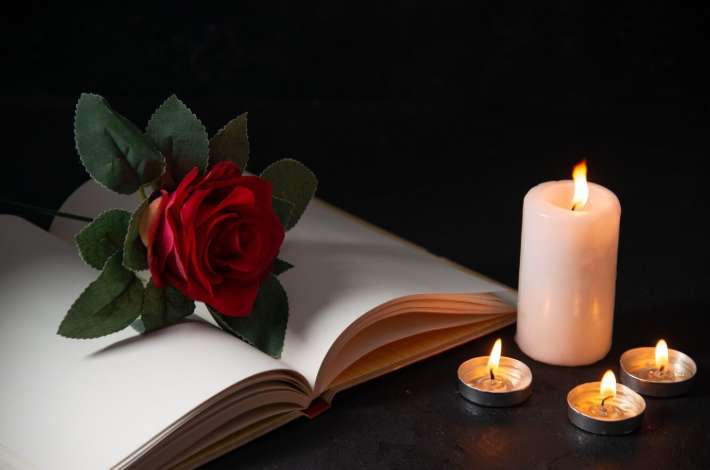
My little hometown was modest, tucked between two pristine white homes with manicured lawns and a weathered, overgrown house that seemed forgotten by time.
That owner’s house is Mrs. Calloway, my elderly neighbor who lived two doors down.
I never expected her to notice me, let alone wave me over one brisk spring morning.
“You’re the new girl, aren’t you?”
“It’s been five months since I moved in, but I guess I still count as new,” I replied with a tentative smile.
Her eyes, sharp and deeply observant, softened. “Would you sit with me for a moment? I could use some company,” she said.
“Do you have any family?” I asked one evening as we sipped tea on her porch.
“Not anymore,” she said softly. The finality in her tone discouraged further questions.
One afternoon, as I cleaned her mantle, she spoke up unexpectedly. “You remind me of someone,” she said, her voice tinged with wistful emotion.
“Who?” I asked, pausing mid-dust.
“Someone I knew a long time ago,” she murmured.
Her funeral was as understated as her life. A handful of strangers attended, none of whom seemed to know her well.
“I’ll miss you, Mrs. Calloway,” I whispered, my voice trembling. “Thank you for everything.”

I thought that was the end of it.
A month later, a knock at my door interrupted my quiet grief. Standing on my porch was a sharply dressed man holding a leather briefcase.
“Kate?” he asked, his tone professional yet kind.
“Yes?” I replied, my brow furrowing.
“I’m Mrs. Calloway’s lawyer,” he explained. “She left instructions for me to deliver something to you personally.”
“Dear Kate,” the letter began, and her voice seemed to echo in my mind as I read.

“You are not just the kind soul who helped me in my final years. You are my granddaughter.”
The words stunned me. I stared at the page, my heart racing as the lawyer began to explain.
“She wanted to tell you,” the lawyer continued, “but she feared you’d reject her.”
The revelations felt overwhelming, but the surprises weren’t over. “Mrs. Calloway left her entire estate to you,” the lawyer said. “It’s worth over $20 million, including her home and belongings.”
In her bedroom, I found a box containing another letter.
“My dear Kate,
Finding you was the greatest blessing of my life. I didn’t have the courage to tell you the truth, but I hope you felt my love through the time we shared. You were my second chance, my redemption.
With all my love,
Grandma.”
Tears streamed down my face as I read her words. I clutched the letter to my chest, the weight of her love filling the emptiness I’d carried since my mother’s passing.
In the garden, I found her unfinished painting—a sunlit meadow, its brushstrokes delicate yet incomplete. On the back of the canvas were the words: “For Kate, my light in the darkness.”

I decided then what I would do with her legacy. I wouldn’t sell the house. Instead, I’d restore it and turn it into a sanctuary for artists, dreamers, and anyone searching for connection and hope. It would be a place where her memory—and her love—could live on.
Because sometimes, the past doesn’t just haunt us—it heals us.















